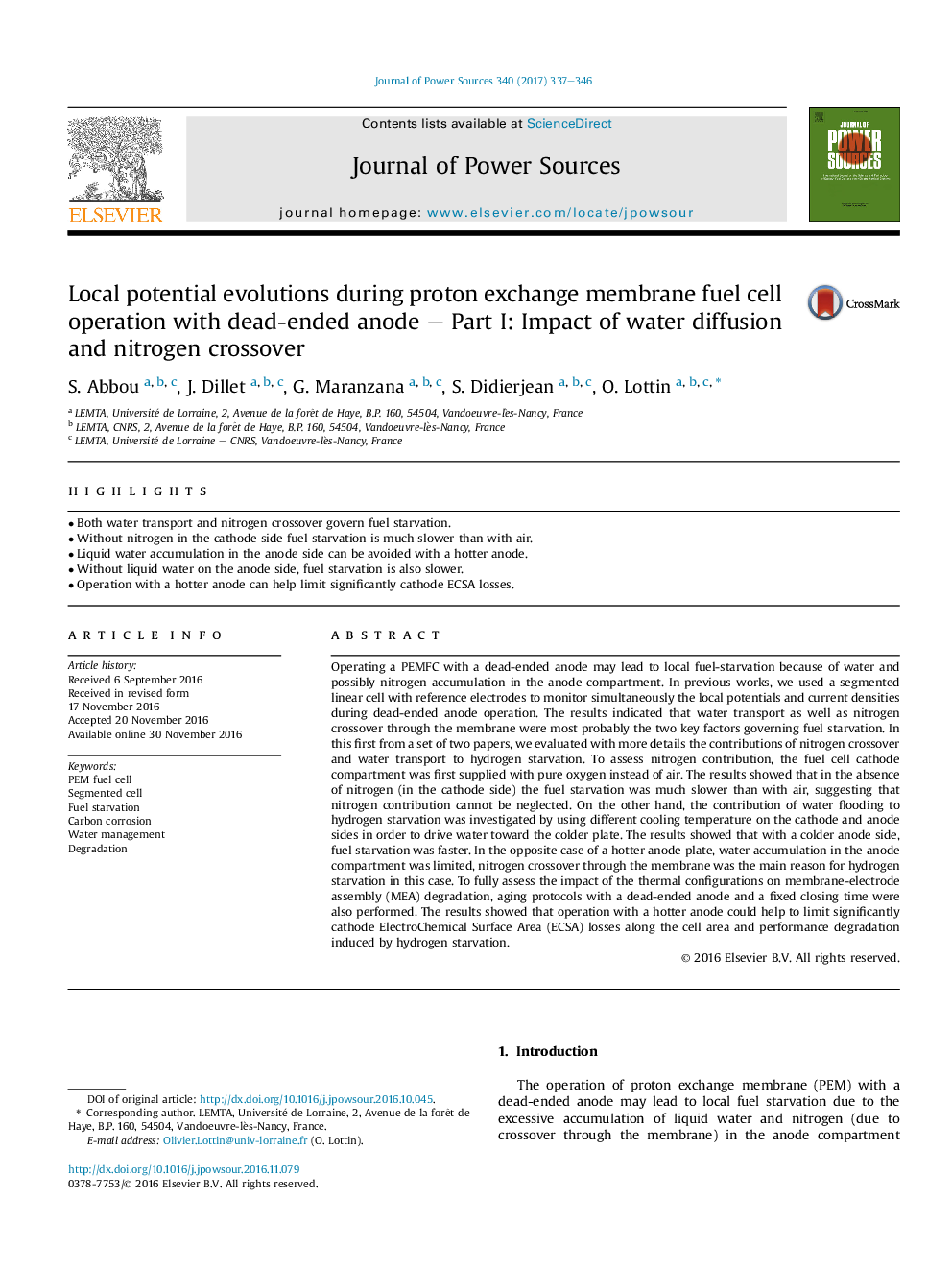| کد مقاله | کد نشریه | سال انتشار | مقاله انگلیسی | نسخه تمام متن |
|---|---|---|---|---|
| 5149860 | 1497892 | 2017 | 10 صفحه PDF | دانلود رایگان |
عنوان انگلیسی مقاله ISI
Local potential evolutions during proton exchange membrane fuel cell operation with dead-ended anode - Part I: Impact of water diffusion and nitrogen crossover
دانلود مقاله + سفارش ترجمه
دانلود مقاله ISI انگلیسی
رایگان برای ایرانیان
کلمات کلیدی
موضوعات مرتبط
مهندسی و علوم پایه
شیمی
الکتروشیمی
پیش نمایش صفحه اول مقاله

چکیده انگلیسی
Operating a PEMFC with a dead-ended anode may lead to local fuel-starvation because of water and possibly nitrogen accumulation in the anode compartment. In previous works, we used a segmented linear cell with reference electrodes to monitor simultaneously the local potentials and current densities during dead-ended anode operation. The results indicated that water transport as well as nitrogen crossover through the membrane were most probably the two key factors governing fuel starvation. In this first from a set of two papers, we evaluated with more details the contributions of nitrogen crossover and water transport to hydrogen starvation. To assess nitrogen contribution, the fuel cell cathode compartment was first supplied with pure oxygen instead of air. The results showed that in the absence of nitrogen (in the cathode side) the fuel starvation was much slower than with air, suggesting that nitrogen contribution cannot be neglected. On the other hand, the contribution of water flooding to hydrogen starvation was investigated by using different cooling temperature on the cathode and anode sides in order to drive water toward the colder plate. The results showed that with a colder anode side, fuel starvation was faster. In the opposite case of a hotter anode plate, water accumulation in the anode compartment was limited, nitrogen crossover through the membrane was the main reason for hydrogen starvation in this case. To fully assess the impact of the thermal configurations on membrane-electrode assembly (MEA) degradation, aging protocols with a dead-ended anode and a fixed closing time were also performed. The results showed that operation with a hotter anode could help to limit significantly cathode ElectroChemical Surface Area (ECSA) losses along the cell area and performance degradation induced by hydrogen starvation.
ناشر
Database: Elsevier - ScienceDirect (ساینس دایرکت)
Journal: Journal of Power Sources - Volume 340, 1 February 2017, Pages 337-346
Journal: Journal of Power Sources - Volume 340, 1 February 2017, Pages 337-346
نویسندگان
S. Abbou, J. Dillet, G. Maranzana, S. Didierjean, O. Lottin,